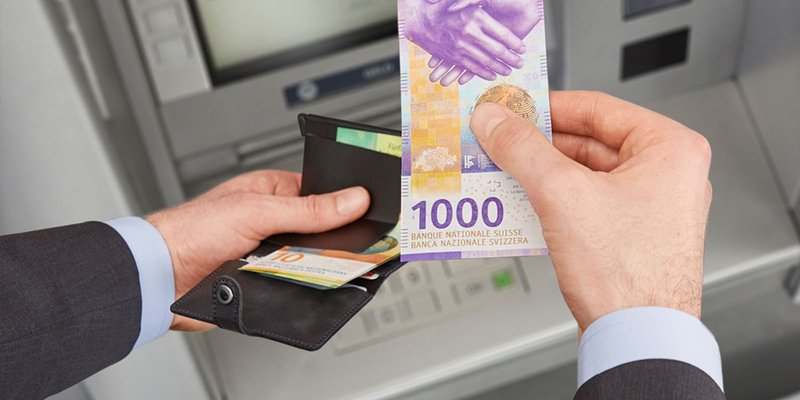Why cash is so respected in Switzerland
Philippe Chappuis, 44, favours paying with a card or using a mobile payment app – but for practical reasons. “I don’t like my wallet being stuffed with coins,” he says. Yet he can understand why people like cash, saying the SNB’s use of negative interest rates has led to uncertainty around how banks might react and raised concerns about only existing on a virtual level. Cash is more tangible, he feels: “You can be sure you own it.”
Jürgen Engler, like other traders at Basel’s Marketplatz, only accepts cash. “Two or three customers a month ask to pay with a card,” he says.
Image from SNB's image gallery
“When I go to the shops I like to pay with a card but when I go to the market or to a restaurant I always pay with real money.”
Cash is king for the Swiss. Even with an increase in digital payments, it is common practice for everyone to be carrying cash. While some countries or economic areas discontinue larger denominations and others try to cull coins altogether, progressive and peaceful Switzerland expects to keep cash around for the foreseeable future. Whether it's a payment for a car or a coffee, cash is accepted without judgement.
Why then do the Swiss prefer cash? Two simple reasons are that cash is widely considered to be part of their culture and people believe that using it allows them to track their spending more easily. In Basel, 53-year-old Chris Troiani confirmed this, saying many people she knows still prefer the reassurance of carrying big bills in their wallet.
“For mass adoption to take place it depends on the trade-off between privacy, convenience, self-identity and the perceived value of cash as a protection against going into debt,”
Whether you're a traditional tradesmen or a young tech wizard, everyone has their own reasons for choosing how they pay. BBC explores why the freedom to use cash is so widely respected in Switzerland.
Last month, The Swiss National Bank introduced one of the world's most valuable banknote in circulation, worth approximately 800 euros. The 1000-franc note focuses on Switzerland’s communicative flair – expressed by language, the note’s key motif. What better reason to read about the importance of cash in Switzerland?

